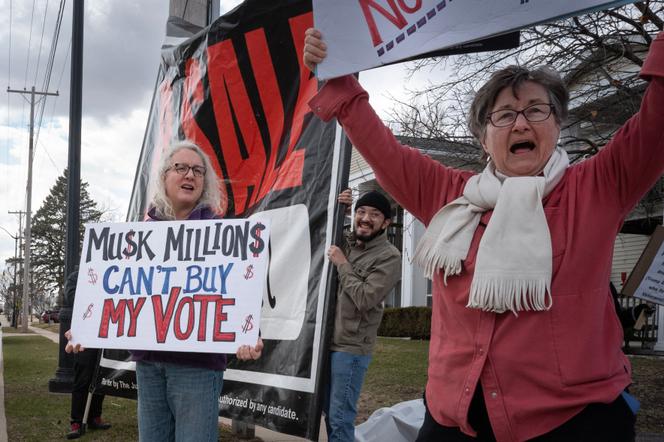


President Donald Trump on Tuesday, March 26, signed a sweeping executive action to overhaul elections in the US, including requiring documentary proof of citizenship to register to vote in federal elections and demanding that all ballots be received by Election Day.
The order says the US has failed "to enforce basic and necessary election protections" and calls on states to work with federal agencies to share voter lists and prosecute election crimes. It threatens to pull federal funding from states where election officials don't comply.
It also says states should turn over their voter lists and records of voter list maintenance to the Department of Homeland Security and Elon Musk's Department of Government Efficiency (DOGE) for review and directs federal agencies to share data with states to help them identify noncitizens on their rolls.
The move, which is likely to face swift challenges because states have broad authority to set their own election rules, is consistent with Trump's long history of railing against election processes. He often claims elections are being rigged, even before the results are known, and has waged battles against certain voting methods since he lost the 2020 election to Democrat Joe Biden and falsely blamed it on widespread fraud.
Trump has focused particularly on mail voting, arguing without evidence that it's insecure and invites fraud even as he has shifted his position on the issue, given its popularity with voters, including Republicans. While fraud occurs, it's rare, limited in scope, and it gets prosecuted.
Republicans have defended that measure as necessary to restore public confidence in elections. Voting in federal elections by noncitizens is already illegal and can result in felony charges and deportation.
Voting rights groups have expressed concerns that the requirement could disenfranchise people. An estimated 9% of US citizens of voting age, or 21.3 million people, do not have proof of citizenship readily available, according to a 2023 report by the Brennan Center for Justice and other groups.
There are also concerns that married women who have changed their names will encounter trouble when trying to register because their birth certificates list their maiden names. Such hiccups happened in recent town elections in New Hampshire, which has a new state law requiring proof of citizenship to register to vote.
Trump's order directs federal agencies, including the Department of Homeland Security, the Social Security Administration and the State Department, to share with election officials federal data that could help the identify noncitizens on their rolls. It also says the attorney general should "prioritize enforcement of federal election integrity laws" in states that don't share information about suspected election crimes with the federal government.
The order aims to require votes to be "cast and received" by Election Day and says federal funding should be conditional on state compliance. Currently, 18 states and Puerto Rico accept mailed ballots received after Election Day as long they are postmarked on or before that date, according to the National Conference of State Legislatures.
Trump's order is likely to face legal challenges, given that the Constitution gives authority over elections to the states. While Congress has the power to regulate voting – and has done so to pass such laws as the Voting Rights Act – the Constitution makes clear that states have primary authority to set the "times, places and manner" for elections.
Colorado's Democratic secretary of state, Jena Griswold, called the order an "unlawful" weaponization of the federal government and said Trump is "trying to make it harder for voters to fight back at the ballot box." Democratic Rep. Joe Morelle of New York, the ranking member of the House committee that oversees elections, said the executive order "is not just misguided – it is immoral and illegal." At least one Democratic attorney threatened legal action on Tuesday. Marc Elias, who has been the subject of Trump's ire, said in a social media post: "This will not stand. We will sue."
The executive branch does have some authority over elections, said Justin Levitt, a constitutional law expert and former White House senior policy adviser during the Biden administration. He said some federal agencies provide election support, including the US Election Assistance Commission, which distributes federal grant money to states and runs a voluntary certification program for voting systems. The US Cybersecurity and Infrastructure Security Agency helps election officials protect their systems.
Former President Biden issued an executive order in 2021 directing federal agencies to take steps to boost voter registration, which drew complaints from Republicans who called it federal overreach. Trump has rescinded that order.
Trump's executive order comes as the Republican National Committee launched a massive effort to probe voter registration list maintenance nationwide. The committee sent public records requests this week asking for documents related to voter roll list maintenance in 48 states and Washington, DC, asserting that the public should know how states are removing ineligible people from voter rolls, including dead people and non-citizens.
Trump referenced election fraud as he signed the order on Tuesday and added that more election actions would be taken in the coming weeks.
